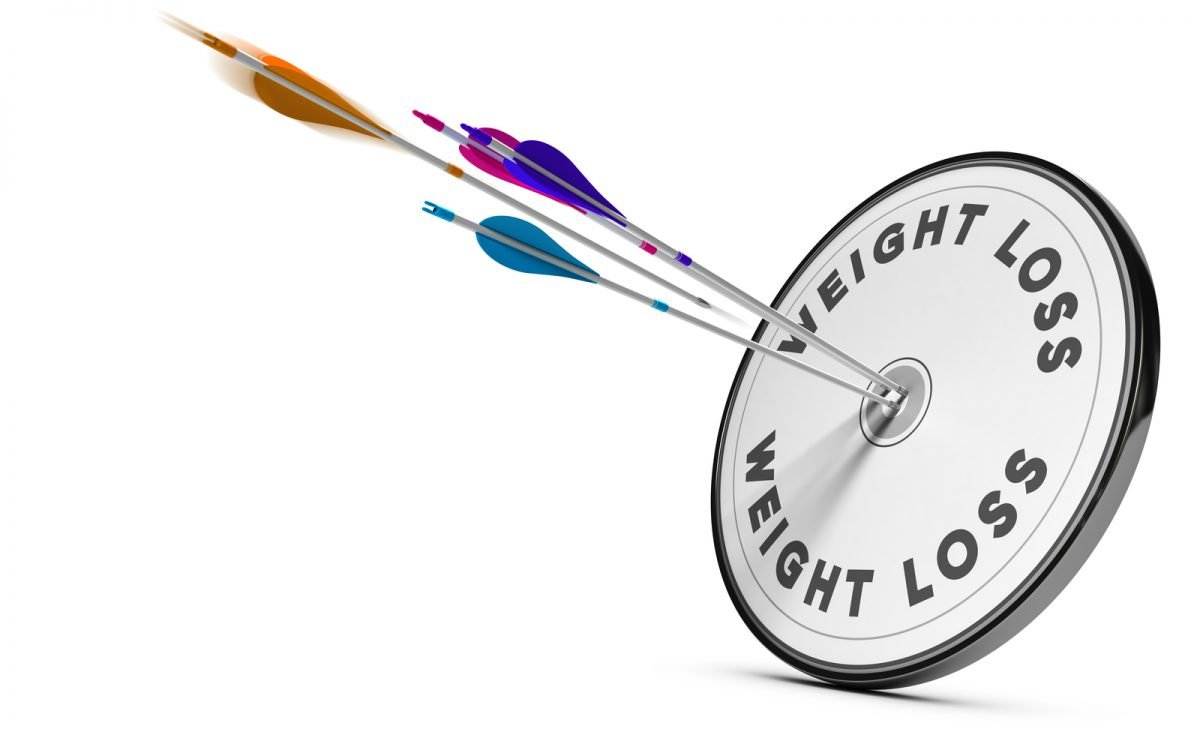As someone who has tried the ketogenic diet, you may have experienced frustration when the scale doesn’t seem to budge. Despite following the strict diet guidelines, you may not be seeing the results you were hoping for. In this article, I will explore at least five reasons (maybe more) why you are not losing weight on a ketogenic diet.
Firstly, it’s important to understand the ketogenic diet and how it works. The diet is based on a high-fat, low-carbohydrate intake that forces your body into a state of ketosis. In this state, your body burns fat for fuel instead of carbohydrates. However, it’s not just about cutting carbs and increasing fat intake. There are other factors to consider, such as the role of calories and macronutrients.
One common mistake people make when trying to lose weight while on the ketogenic diet is assuming they can eat as much fat as they want without any consequences. While it’s true that fat is an important part of the diet, it’s still important to maintain a calorie deficit if weight loss is your goal. The following sections will explore other common mistakes and misconceptions hindering your weight loss progress.
Key Takeaways
- The ketogenic diet is a high-fat, low-carbohydrate diet that forces your body into ketosis.
- Maintaining a calorie deficit is still essential for weight loss on the ketogenic diet.
- There may be other lifestyle factors or underlying medical conditions that are impacting your weight loss progress.
Understanding the Ketogenic Diet
I have been following the ketogenic diet for some time now and have found it an effective way to lose weight. The ketogenic diet is a low-carbohydrate, high-fat diet that is designed to put your body into a state of ketosis. When you are in ketosis, your body burns fat for fuel instead of carbohydrates.
The ketogenic diet is based on the principle that reducing your carbohydrate intake will force your body to burn fat for energy. This is achieved by limiting your carbohydrate intake to less than 50 grams per day. This means you must avoid foods high in carbohydrates, such as bread, pasta, and sugar.
One of the key benefits of the ketogenic diet is that it can help you lose weight quickly. When you are in ketosis, your body is burning fat for fuel, which means you will lose weight faster than you would on a traditional low-fat diet.
However, it is important to note that the ketogenic diet is unsuitable for everyone. If you have certain medical conditions, such as diabetes, you may need to modify the ketogenic diet to suit your needs. It is always best to consult a healthcare professional before starting any new diet.
The ketogenic diet is a low-carbohydrate, high-fat diet that can help you lose weight quickly. By limiting your carbohydrate intake, your body will be forced to burn fat for energy, which can lead to rapid weight loss. However, it is important to consult with a healthcare professional before starting any new diet to ensure that it is safe and appropriate for you.
The Role of Calories and Macronutrients
Calories and Weight Loss
When it comes to weight loss, the most important factor is creating a calorie deficit. This means you must burn more calories than you consume to lose weight. While a ketogenic diet can be effective for weight loss, it is not a magic solution that allows you to eat as much as you want without consequence.
You must pay attention to your calorie intake to lose weight on a ketogenic diet. Tracking your calories can help ensure that you are creating a calorie deficit. However, it is important to note that not all calories are created equal.

Macronutrients in a Keto Diet
The three main nutrients that make up our diets are macronutrients: protein, fat, and carbohydrates. On a ketogenic diet, the goal is to consume a high amount of fat, a moderate amount of protein, and a low amount of carbohydrates.
Fat is the primary fuel source on a ketogenic diet, and it is important to consume healthy fats such as avocados, nuts, and olive oil. Protein is important for maintaining muscle mass, but it is important not to consume too much as it can be converted to glucose through a process called gluconeogenesis.
Carbohydrates should be limited to a ketogenic diet, focusing on consuming low-carb vegetables and foods high in fiber. It is important to track your carb intake, including net carbs (total carbs minus fiber), to ensure you stay within your daily limit.
In summary, while a ketogenic diet can be effective for weight loss, paying attention to your calorie intake and macronutrient ratios is important. You can achieve your weight loss goals on a ketogenic diet by creating a calorie deficit and consuming many healthy fats, moderate protein, and low carbohydrates.
Common Mistakes and Misconceptions
As someone who has been following a ketogenic diet for a while now, I understand the frustration of not seeing the results you were hoping for. You may still struggle to lose weight despite following a low-carb, high-fat diet. Here are some common mistakes and misconceptions that could be hindering your progress.
Overeating Healthy Fats
One of the biggest misconceptions about the ketogenic diet is that you can eat as much fat as you want. While it’s true that healthy fats like cheese, butter, avocado, and nuts can be beneficial for weight loss, it’s important to remember that they are still high in calories. Consuming too many calories, even if they come from healthy fats, can still lead to weight gain.
To avoid overeating healthy fats, track your calorie intake and ensure you’re not consuming more than your body needs. This can be done using a food diary or a calorie-tracking app.
Ignoring the Importance of Fiber
Another mistake people make on the ketogenic diet is not getting enough fiber. Fiber is important for digestive health and can help you lose weight by keeping you full and satisfied. Unfortunately, many low-carb foods are also low in fiber, which can lead to constipation and other digestive issues.
To ensure you get enough fiber, incorporate high-fiber foods like leafy greens, broccoli, and cauliflower into your diet. You can also supplement with a fiber powder or take a fiber supplement.
Misunderstanding Net Carbs
Finally, it’s important to understand the concept of net carbs. Net carbs are the total amount of carbohydrates in a food minus the fiber and sugar alcohols. Keeping your net carb intake low is important to stay in ketosis on the ketogenic diet.
However, some people make the mistake of assuming that all low-carb foods are created equal. For example, a food may be labeled as “low-carb” but still contain significant sugar alcohols, which can still impact your blood sugar and insulin levels.
To avoid this mistake, make sure you’re reading food labels carefully and paying attention to both the total carb count and the net carb count. Additionally, focus on eating whole, unprocessed foods as much as possible to ensure you get the nutrients your body needs.

The Impact of Lifestyle Factors
Lifestyle factors can play a significant role in weight loss on a ketogenic diet. Here are three key areas to consider:
The Importance of Sleep
Sleeping is crucial for overall health and can significantly impact weight loss. Lack of sleep has been linked to increased levels of the hormone ghrelin, which stimulates appetite, and decreased levels of the hormone leptin, which regulates appetite. This can lead to overeating and weight gain.
On a ketogenic diet, it’s important to prioritize sleep to help regulate these hormones and support weight loss. Aim for 7-9 hours of quality sleep each night, and consider implementing a consistent bedtime routine to help improve sleep quality.
Exercise and Physical Activity
Regular exercise and physical activity can also play a role in weight loss on a ketogenic diet. Exercise can help increase calorie burn, build muscle mass, and improve overall health.
Incorporating both aerobic exercise and strength training into your routine can be beneficial. Aim for at least 150 minutes of moderate-intensity aerobic exercise and two days of strength training per week.
Managing Stress Levels
Stress can significantly impact weight loss, as it can lead to overeating and increased levels of the hormone cortisol. Chronic stress can also have negative effects on mental health.
Consider incorporating relaxation techniques such as meditation or yoga into your routine to manage stress levels. Prioritizing self-care activities such as spending time outdoors, reading, or spending time with loved ones can also help reduce stress levels.
Overall, lifestyle factors such as sleep, exercise, and stress management can play a significant role in weight loss on a ketogenic diet. By prioritizing these areas, you can support your weight loss efforts and improve overall health.

Conclusion
In conclusion, there are several reasons why you may not be losing weight on a ketogenic diet. It is important to remember that weight loss is a complex process with no one-size-fits-all solution. However, by making simple adjustments to your diet and lifestyle, you can achieve your weight loss goals on a ketogenic diet.
Firstly, ensuring you consume the right calories for your body is important. Eating too many calories, even on a ketogenic diet, can lead to weight gain. Use a calorie tracking app to help you monitor your daily intake and adjust as needed.
Secondly, make sure you are eating enough protein. Protein is essential for maintaining muscle mass, which is important for weight loss. Aim for at least 0.8 grams of protein per pound of body weight per day.
Thirdly, ensure that you are getting enough sleep. Lack of sleep can lead to weight gain and make it harder to lose weight. Aim for 7-9 hours of sleep per night.
Fourthly, consider incorporating some form of exercise into your routine. Exercise can help to increase muscle mass, boost metabolism, and aid in weight loss.
Lastly, be patient and persistent. Weight loss takes time, and staying consistent with your diet and lifestyle changes is important. Remember that rapid weight loss is not always sustainable or healthy, and focus on making sustainable changes for long-term success.
A ketogenic diet can be a great tool for weight loss, but it is important to ensure that you do it healthily and sustainably. By following these tips, you can achieve your weight loss goals and improve your overall health and well-being.
Frequently Asked Questions
What are common mistakes people make on a ketogenic diet?
One common mistake people make on a ketogenic diet is not tracking their macronutrient intake properly. It is important to keep track of your daily carbohydrate, protein, and fat intake to ensure that you are in a state of ketosis. Another mistake is insufficient electrolytes, leading to dehydration and other health issues.
How many calories should a female consume on a ketogenic diet?
The number of calories a female should consume on a ketogenic diet depends on individual needs and goals. However, a general guideline is to consume around 1200-1500 calories per day, focusing on getting most of those calories from healthy fats.
What are some foods that should be avoided on a ketogenic diet?
Foods that should be avoided on a ketogenic diet include grains, sugars, and highly processed foods. Limiting your intake of fruits is also important, as they contain natural sugars that can kick you out of ketosis.
What are some signs that you are not in ketosis?
Some signs that you are not in ketosis include increased hunger, fatigue, and carbohydrate cravings. You may also experience headaches, dizziness, and brain fog.
Is it possible to be in a calorie deficit and not lose weight on a ketogenic diet?
Yes, it is possible to be in a calorie deficit and not lose weight on a ketogenic diet. This can happen if you are not tracking your macronutrient intake correctly or if you are not consuming enough healthy fats. It is crucial to ensure that you are in a state of ketosis and consuming enough calories to support your body’s needs.
What are some tips for breaking a weight loss plateau on a ketogenic diet?
Some tips for breaking a weight loss plateau on a ketogenic diet include increasing physical activity, reducing calorie intake, and consuming more healthy fats. It is also important to ensure that you are tracking your macronutrient intake properly and consuming enough electrolytes to support your body’s needs.

